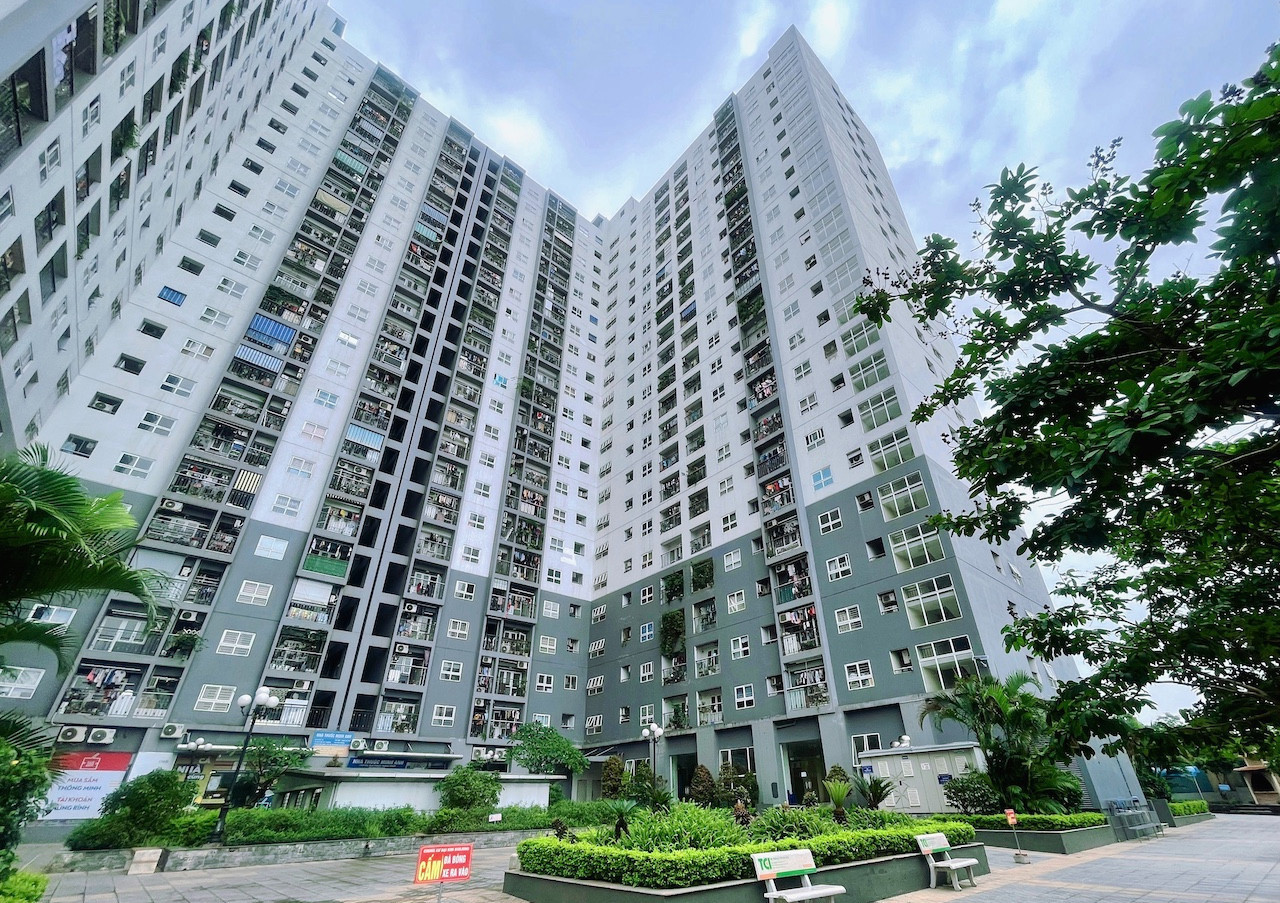According to a report from the National Assembly's monitoring committee, the real estate market saw significant price hikes from 2022-2023. In Hanoi and Ho Chi Minh City, there are now no apartment options within reach of the average citizen’s income.

The National Assembly’s monitoring team recently presented the results of its review of policies and laws on real estate market management and social housing development from 2015-2023 to lawmakers.
Limited supply, rising housing costs
According to the report, during this period, the real estate market has gradually met the housing needs of citizens. By the end of the review, approximately 3,363 commercial and urban housing projects had been launched or were underway, covering about 11,191 hectares of land.
However, in 2022 and 2023, the real estate market declined, and businesses faced considerable challenges as issues from the 2015-2021 period, exacerbated by the COVID-19 pandemic, led to limited supply.
From 2022-2023, real estate prices surged far beyond income growth rates for most citizens. In Hanoi and Ho Chi Minh City, there are no longer apartment segments that are affordable for the majority of the population.
A report from the Hanoi People’s Committee shows that mid- and high-end apartments dominate the market. In 2022, apartment prices in Hanoi soared, while real estate transactions in Ho Chi Minh City declined sharply as prices spiraled out of control, creating a mismatch between price and value.
Additionally, this period saw a large number of stalled or delayed housing projects. In Hanoi alone, 404 projects encountered issues, of which 158 were resolved while 246 are still under review. Ho Chi Minh City faced challenges with 220 projects.
In the past three years, real estate development in Hanoi has been slow, with no new projects receiving investment approval. The majority of new housing products are from previously approved projects.
Social housing prices too high for beneficiaries

Regarding social housing, from 2015-2023, approximately 800 projects were launched, delivering over 567,000 units. Of these, 373 projects were completed with over 193,000 units, while 129 projects commenced construction with over 114,000 units. Another 298 projects gained investment approval for a total of 258,000 units.
"Overall, social housing policies and laws from 2015-2023 lacked stability. Several critical regulations needed for social housing development were either unclear or insufficient, complicating implementation at the local level," stated the National Assembly report.
During this period, many localities did not meet their social housing development targets, with limited land dedicated to social housing in urban areas, largely relying on the mandatory 20% allocation from commercial housing projects.
The process for approving social housing beneficiaries and evaluating housing prices often exceeded the timeframes stipulated, affecting the investment cycle, capital recovery, bank loan repayments for developers, and citizens' access to social housing.
"On average, social housing prices remain too high relative to the income levels of intended beneficiaries. Government-backed funding for social housing credit programs is insufficient, and loan procedures are complex and redundant. Maximum loan amounts for social policy beneficiaries are low and inadequate," noted the report.
Diversifying real estate products
The monitoring team recommended that the government and relevant ministries establish mechanisms to resolve stalled real estate projects, unlock market resources, and drive economic and social development.
They called for the government and ministries to prevent a “hot” market or “frozen” market, which could negatively impact economic growth and lead to social consequences.
In addition, the team stressed the need for a diversified real estate market that balances supply and demand, with increased affordable housing options to match citizens' incomes.
The government and ministries should adopt sustainable measures to realign property prices with intrinsic value, deterring manipulation and avoiding speculative bidding that artificially inflates prices.
They advised the National Assembly to allocate sufficient public investment for social rental housing development in urban areas, using public investment funds. The government should also expedite social housing lending programs and resolve barriers to effectively implement a 120 trillion VND support package.
Quang Phong